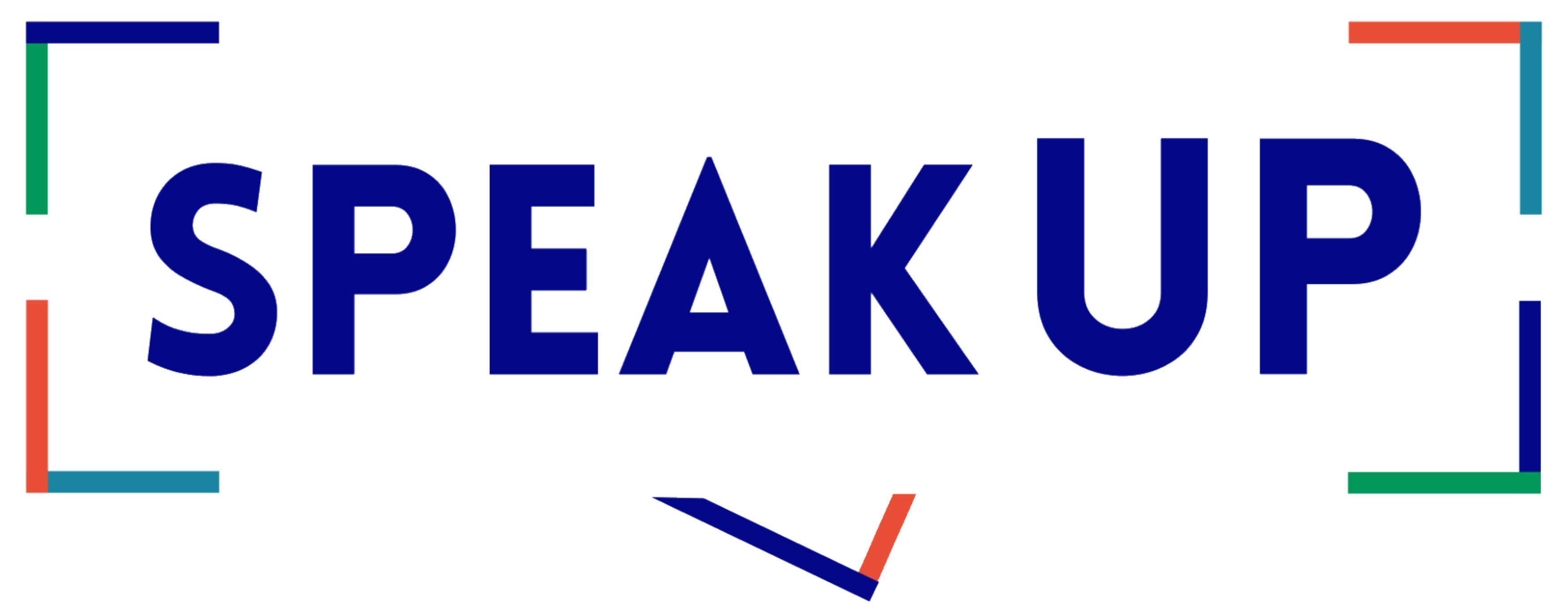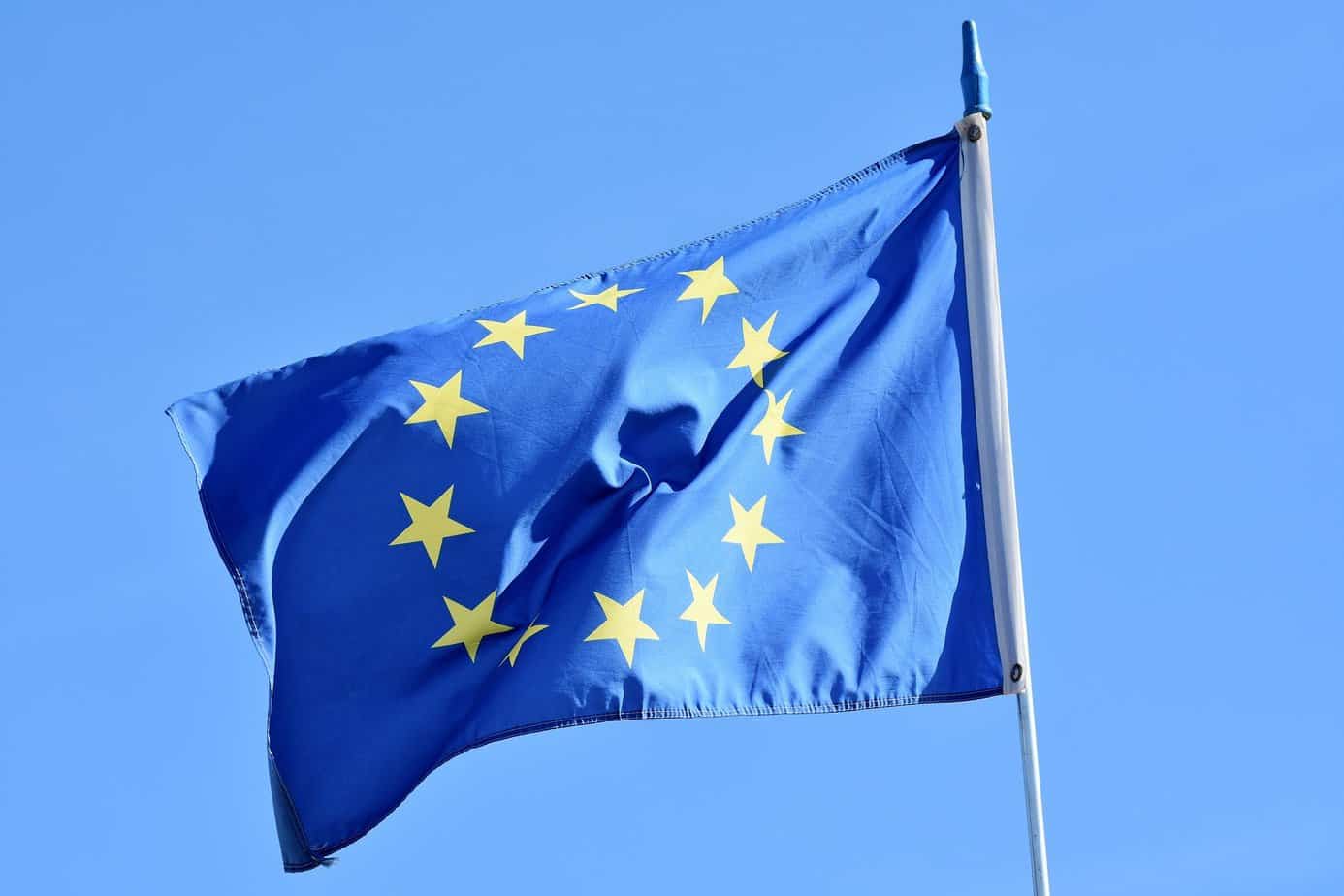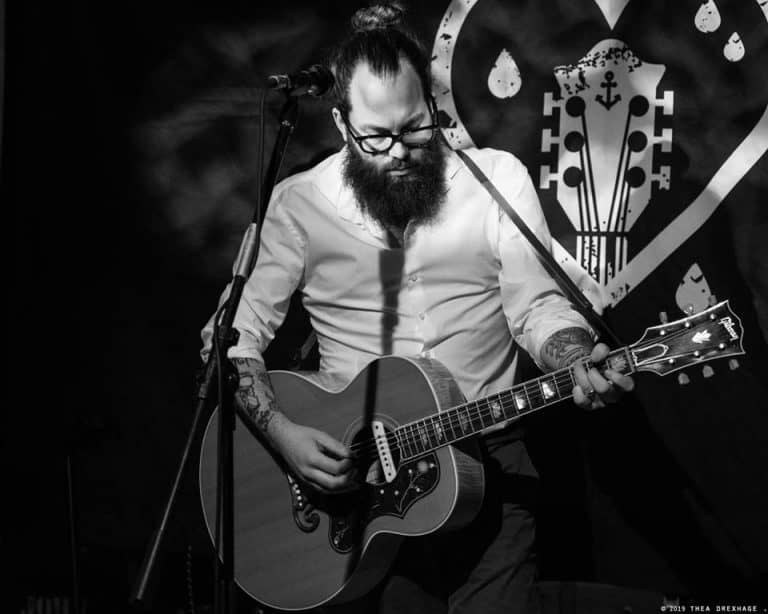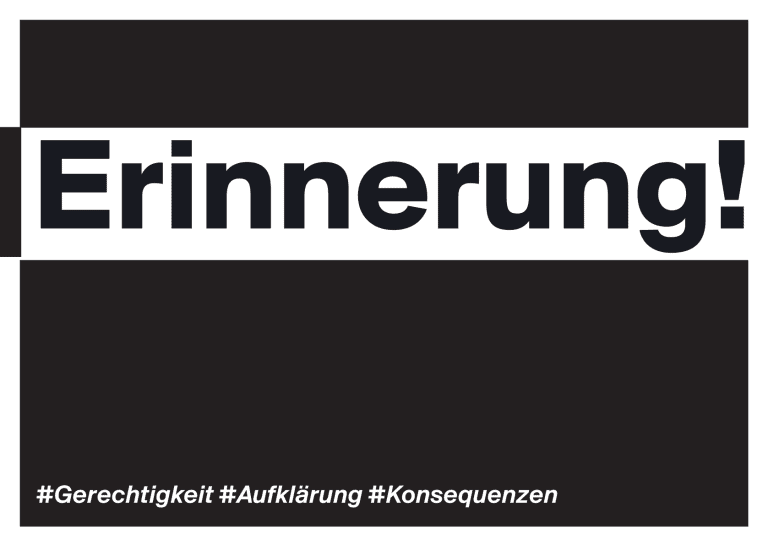„Mitreden über Europa“ – im digitalen Bürgerforum | „Have a say about Europe“ at the digital citizen’s forum
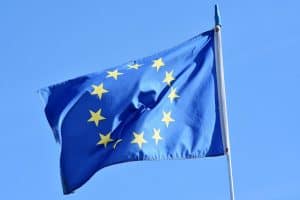
Sich abgehängt fühlen, und weit weg von Europa – das sind Dinge, die Menschen in Brandenburg nach wie vor zugeschrieben werden. Um Politik in ebensolche Regionen zu bringen, initiiert das Verbindungsbüro des Europäischen Parlaments in Deutschland regelmäßig sogenannte Bürgerforen. Es ist wohl kein Zufall, dass das Thema Europa speziell für Brandenburg ausgesucht wurde. Ende April diskutierten Politikerinnen mit Lokal- und Europabezug moderiert von Christine Keilholz im digitalen Raum vor allem über Digitalisierung, aber auch über Corona und die Klimapolitik. Von Ayla Städler.
Normalerweise sind alle physisch anwesend, die Politiker:innen sozusagen hautnah – auf diesen Bürgerforen soll den Menschen Politik nahegebracht werden. Heute selbstverständlich nicht, alle sind von den unterschiedlichsten Orten zugeschaltet. Man bedauert diesen Umstand, mehrmals. Alles wäre doch viel besser, viel persönlicher, könnte man tatsächlich miteinander reden. Siebenundfünfzig Bürgerinnen und Bürger sind dennoch digital zusammengekommen, um zuzuhören und Fragen zu stellen. Säße man sonst in Stuhlreihen in einer Mehrzweckhalle, sitzt man heute vor dem Computer, der sieben kleine Kästchen zeigt. In jedem davon ein Kopf: Vier davon Politikerinnen; Christine Keilholz, die die Moderation übernimmt; Oliver Hänsgen vom Europäischen Parlament, das das Bürgerforum ausrichtet und eine Assistentin, welche die Fragen verwaltet.
Cornelia Ernst von den Linken ist aus Sachsen zugeschaltet, dort saß sie im Landtag, bis sie Mitglied des Europäischen Parlaments wurde, Gabriele Bischoff von der SPD ist Präsidentin des Wirtschafts- und Sozialausschusses in Brüssel, Barbara Riechstein von der CDU ist als Vertreterin des Brandenburger Landtags und der dortigen Abteilung für Europaangelegenheiten zugeschaltet und Ska Keller sitzt in Brüssel, wo sie Co-Vorsitzende der Grünen im Europäischen Parlament ist. Sie alle sind in einem der neuen Bundesländer geboren, um die es hier heute geht.
„Die Menschen sind überfordert von Europa“
Vor 30 Jahren ist Brandenburg nicht nur schnell Teil Deutschlands geworden, sondern gleichzeitig plötzlich Teil Europas. Wie selbstverständlich sich die Koexistenz mit dem polnischen Nachbarn entwickelt hatte, wie sehr die nationalen Grenzen verschwommen waren, das zeigte sich drastisch in der Pandemie. Als die Menschen von einem Tag auf den anderen nicht mehr zur Arbeit, nicht mehr zu ihren Familien in das plötzlich wieder so ferne Land kamen. Oft werde vergessen, dass Landesgrenzen teilweise mitten durch Orte verliefen, so Ska Keller. Kurzerhand wurden Gelder gelockert, auf das polnische Pflegepersonal konnte und wollte man selbstverständlich nicht verzichten. Doch damit ist das Problem sicher nicht gelöst. Für die Bewohner:innen ist es ganz normal, täglich mehrfach von Polen nach Deutschland und wieder zurückzulaufen.
Es sei frustrierend, so Ska Keller, dass für diese Fälle ein Jahr nach Beginn der Pandemie immer noch keine Lösung gefunden sei. Viel Vertrauen sei verloren gegangen, vor allem Vertrauen in die Handlungsfähigkeit der EU. Gerade zu Beginn der Pandemie – vor einem Jahr – gab es zu viele Streitigkeiten und keine klare Linie. Im Europäischen Parlament seien Verhandlungen oft zäh. Selbst wenn viele Mitgliedsstaaten einen Beschluss sinnvoll fänden, wollen alle die Vorteile, keiner jedoch wolle investieren. Corona habe gezeigt, wie sehr die Länder von dem grenzübergreifenden Arbeitsmarkt abhängig sind, sagt Gabriele Bischoff.
Die Menschen seien überfordert, man müsse Europa besser erklären, fordert Barbara Riechstein. Man müsse den Menschen zeigen, wie und wo sie sich einbringen könnten, und welche unmittelbaren Auswirkungen Europa auf ihr Leben haben könne. Doch wie geht das, mitreden, und vor allem, wie geht das in ländlichen Regionen, wo man hierzulande auf den nächsten Hügel klettern muss, um Internet empfangen zu können? Hier wirken alle gleichermaßen einig und hilflos. Es ist aber auch schwierig über digital benachteiligte, abgehängte Mitmenschen zu reden, während man selbst in einen Computer spricht, von funktionierendem Internet abhängig ist, nur um theoretisch hören zu können, wie schlecht ebendies in Brandenburg – und zugegebenermaßen in erschreckend großen Teilen Deutschlands – generell ist.
Ska Keller erzählt von Dienstreisen per Zug von Brüssel nach Berlin. Hinter der belgischen Grenze, bei Aachen, ist Schluss mit Zugoffice, das Internet lässt es nicht zu. Ein Armutszeugnis. Es ärgern sich alle, eine Lösung hat niemand. Es müsse der Blick verstärkt auf einzelne Regionen gelenkt werden. „Europa besteht nun mal nicht nur aus Hauptstädten“, betont Gabriele Bischoff. Deutschland hinke bei Investitionen zur Digitalisierung gewaltig hinterher, aus Brüssel könne man daran aber relativ wenig ändern.
Auch die Kohle ist natürlich ein Thema, sowohl sozial als auch die Umwelt betreffend. Brandenburg sei, was Klimawandel angehe, ein Extrembeispiel, sagt Ska Keller. Kaum Regen, viel Trockenheit, daraus resultieren Missernten und Waldbrände. Die EU will und muss die Klimaziele anpassen, sonst ist es zu spät. Das klingt eindringlich, so ist es auch gemeint. Es ist ein Thema, mit dem es die Grünen im Parlament nicht leicht haben. Auch Cornelia Ernst sieht die Situation dringlich. Die Klimaziele müssten ernst genommen werden und um diese zu erreichen, sei der Kohleausstieg unumgänglich. Leider gebe es aber ein Problem: Das deutsche und das europäische Kohleausstiegsgesetz kollidieren in einigen Punkten, es sei ein „schmutziges Spiel“, sagt sie.
Überhaupt gibt es wenige Lösungen, mehr ein Gefühl von kollektivem Problembewusstsein. Und dennoch: Vielen Menschen sei nicht bewusst, wie sehr man sich in Europäische Politik einmischen könne! Besonders die Expertinnen aus Brüssel versichern, dass Dinge in Bewegung seien. Politik sei langsam, so langsam wie es scheine jedoch auch wieder nicht. Beispielsweise die Konferenz zur Zukunft Europas soll eine Plattform bilden, mit deren Hilfe sich Menschen beteiligen, sich dichter dran fühlen sollen am europäischen Geschehen. Seit Ende 2019 wurde diese Plattform geplant. Mithilfe der europäischen Bürgerinnen und Bürger soll hier die Zukunft der europäischen Demokratie formuliert werden und Europäische Integration vorangebracht werden. Auf der Website können seit Mitte April Reformvorschläge eingebracht und debattiert werden. Auch digitale Veranstaltungen laufen gerade an. Man merkt, mit welcher Begeisterung die Sprecherinnen von dieser Plattform erzählen. Sie alle brennen für Europa und wollen dieses Gefühl an möglichst viele Menschen vermitteln.
Eine gemeinsame Stimme finden
Europäische Gesetzgebung und die der Mitgliedsstaaten kollidieren ab und an. Gemeinsame Standpunkte zu beschließen ist oft nicht einfach und kann viel Zeit und Nerven kosten. Dennoch oder vielleicht gerade deswegen sind sich die Sprecherinnen einig: Die europäische Idee ist gut und richtig. Eine gesetzlich abgesicherte, gemeinsame Stimme zu finden – das hält Cornelia Ernst für unabdingbar, wenn sich die EU vom Anhängsel in eine Mittlerposition entwickeln möchte. Dafür müssten sich Bündnisse bilden, die demokratischen Stimmen sich besser vernetzen, denn Rechte seien nach wie vor ein Problem. Genau aus diesem Grund müsse man auch auf die Bevölkerung zugehen, ihr ihre Stimme bewusst machen, und diese stärken.
Was bleibt ist der Eindruck, Europa solle eigentlich nicht so klein gedacht werden. Die Idee passt nicht in Grenzen; davon diese aufzulösen, sind wir aber noch weit entfernt.
Die Digitalisierung ist – vielleicht den Umständen entsprechend – das größte Thema der Debatte gewesen. Damit scheint man sich vor allem seitens der Organisator:innen eher schwer zu tun. Man bedauert das digitale Format, wünscht zum Abschied demonstrativ einen guten Weg nach Hause – für alle, die diesen noch antreten werden. Ich werde das Gefühl nicht los, dass zumindest die Sprecherinnen aus Brüssel nicht besonders traurig darüber sind, den weiten Weg durch den Äther nicht in einer fahrenden Blechdose zurückgelegt zu haben. Die Leute, die man aber tatsächlich erreichen will, würde man sicherlich eher in der Mehrzweckhalle treffen, darüber wären sich, denke ich, letztendlich alle einig.
-ENGLISH VERSION-
„Have a say about Europe“
– in the digital citizen’s forum

Feeling left out and far far removed from Europe – these are characteristics that people from Brandenburg are still attributed with. To bring politics into regions like these, European Parliament’s liaison office in Germany regularly initiates the so-called citizen’s forums. It is probably no coincidence that ‘Europe‘ was chosen as the topic for Brandenburg. At the end of last month politicians who are connected to the matter in a local and European sense met in the digital space and – moderated by Christine Keilholz – discussed digitalization as well as corona and the climate policy. By Ayla Städler (Translated by Emily Hadrich).
Normally they would be physically present, a first-hand experience of politicians you could say – these citizens’ forums exist to bring people and politics closer together. Of course, for the moment this cannot be, everybody is tuning in today from different locations. These circumstances are regretted, alas! everything would be better, so much more personal, if it were possible to communicate face to face. Even still, fifty-seven citizens have come here together digitally to listen and to ask questions. While usually one would be sitting in rows in a community hall, these days everybody is gathered in front of their computer which will show seven little squares. Each one has a face in it: four politicians; Christine Keilholz, who takes on the role of moderator; Oliver Hänsgen from the European Parliament, which is hosting the forum; and an assistant, who manages the questions.
Cornelia Ernst (DIE LINKE) is tuned in from Saxony, where she was part of the state parliament (Landtag) until she became a member of the European Parliament; Gabriele Bischoff (SPD) is president of the Economic and Social Committee in Brussels; Barbara Riechstein (CDU) takes part as representative of Brandenburg’s state parliament (Landtag) and their own department for European affairs; and Ska Kellers participates out of Brussels where she is co-president of DIE GRÜNEN in the European Parliament. They all were born in one of the states that are the topic of today’s discussion.
“The people are overwhelmed with Europe”
Thirty years ago, Brandenburg did not only all of a sudden become part of Germany, in an instant it was part of Europe as well. Co-existing with their polish neighbors had developed almost naturally, how well the borders between the nations blurred out now becomes drastically visible during the pandemic. From one day to the next people could not go to work anymore, could not see their families in the now so distant country. Often, we forget that some borders cross right through whole towns, says Ska Keller. Without further ado, funds were provided, of course one could not and didn’t want to miss polish care staff. But that does not solve the problem in its entirety. To all the residents it is their normality to cross the border between Poland and Germany multiple times a day.
It is frustrating, says Ska Keller, that even one year into the pandemic there have not been solutions for these cases. Many have lost their trust – trust in the EU’s capacities to act. Especially in the beginnings of the pandemic (one year ago) there have been too many disagreements and no clear direction. In the European Parliament negotiations often can be tenacious. Even if many of the members can agree on a decision everyone will want the benefits but won’t make the investment. According to Gabriele Bischoff Corona has shown how interdependent the different countries’ job markets actually are.
The people are overwhelmed, Europe must be explained better, says Barbara Riechstein. The people must be shown how and where they can weigh in and what immediate impacts Europe can have on their lives. But how does this participation work and most importantly how is this to be made possible in more rural areas where one would have to climb the next hill to get a decent internet connection? On this point of the conversation everyone collectively seems both: very much agreeing but at the same time lost. Why yes, it surely is a difficult task to talk about the digitally disadvantaged, the “left behind” people, while one themselves is talking to a computer fully reliant on a working internet connection just to be listening about how in theory the very one does not do the same in most of Brandenburg and other terrifyingly large parts of the country.
Ska tells us about business trips from Brussels to Berlin via train. Just behind the Belgian border, at Aachen, the mobile office work can no longer be done, the Wi-Fi just doesn’t cut it. A clear weak spot. All participants are openly upset, nobody has a solution. The view must be brought to certain regions. “Europe just does not only consist of capital cities”, Gabriele Bischoff stresses. Germany is lagging behind on investments for the digitalization but in Brussels there couldn’t be done much about it.
The topic of coal is also present, in a social sense and also regarding the environment. In the context of climate change Brandenburg presents an extreme example, says Ska Keller. Almost no rain, massive drought, this results in a bad harvest and forest fires. The EU wants and has to adapt its climate policy goals or else there would be no time left. That sounds very urgent, and it is meant that way. It’s a topic that DIE GRÜNE is given a hard time with in parliament. Cornelia Ernst also sees the urgency of the situation. The climate goals have to be taken seriously, and to fulfill them the phase-out of coal-fired power is inevitable. But there is one problem: German and European laws regarding the matter are contradicting each other on certain points. It is a “dirty game”, she says.
In general, there seem to be less solutions but rather a collective understanding of the existing problems. Yet so many people still are not aware about how to include themselves in European politics! Especially the experts from Brussels assure us that things would be moving forward. Politics are slow but not quite as slow as they sometimes might seem. For example, the Conference on the Future of Europe is supposed to give a platform where people can participate and feel included in the European process. With the help of the European citizens this should be the place where the future European democracy is formulated and where European integration is to be moved forward. Since mid-April reform requests can be submitted and debated on the Website. There are also some digital events starting just now. Listening to the speakers, one clearly notices the excitement they share for not only the platform: they all live for Europe and they want to pass on that feeling to as many others as possible.
Finding a common voice
Every now and then the European laws and the ones of its member states will collide. Settling on joint positions most times is not an easy task and will require time and nerves. Nevertheless – or even because of this – all speakers agree: The European Idea is good and right. Finding a legally defined, common voice is what Cornelia Ernst sees as necessary if the EU wants to develop from being a hang-on to the position of mediator. Therefore, alliances would have to form that can network democratic voices, since certain rights situations still present a problem. For this very reason it is needed to approach the public, let them know about their voice and amplify it.
The impression is left that Europe should not be seen in small dimensions. The European idea does not fit inside borders – but we are still a long way from removing those.
Digitalization has been – maybe due to the circumstances – by far the biggest topic of the conversation. It seems that especially the organizers are having a hard time with it. The digital format is regretted, one demonstratively wishes a safe travel home if that should be the case. I cannot quite shake off the thought that at least the two speakers from Brussels are not particularly sad about not having to travel all of the way in a moving tin can. One the other hand, the people one wishes to reach for this dialogue surely would rather be found in a community hall. On this, I think, everybody could whole-heartedly agree.
